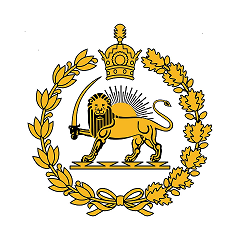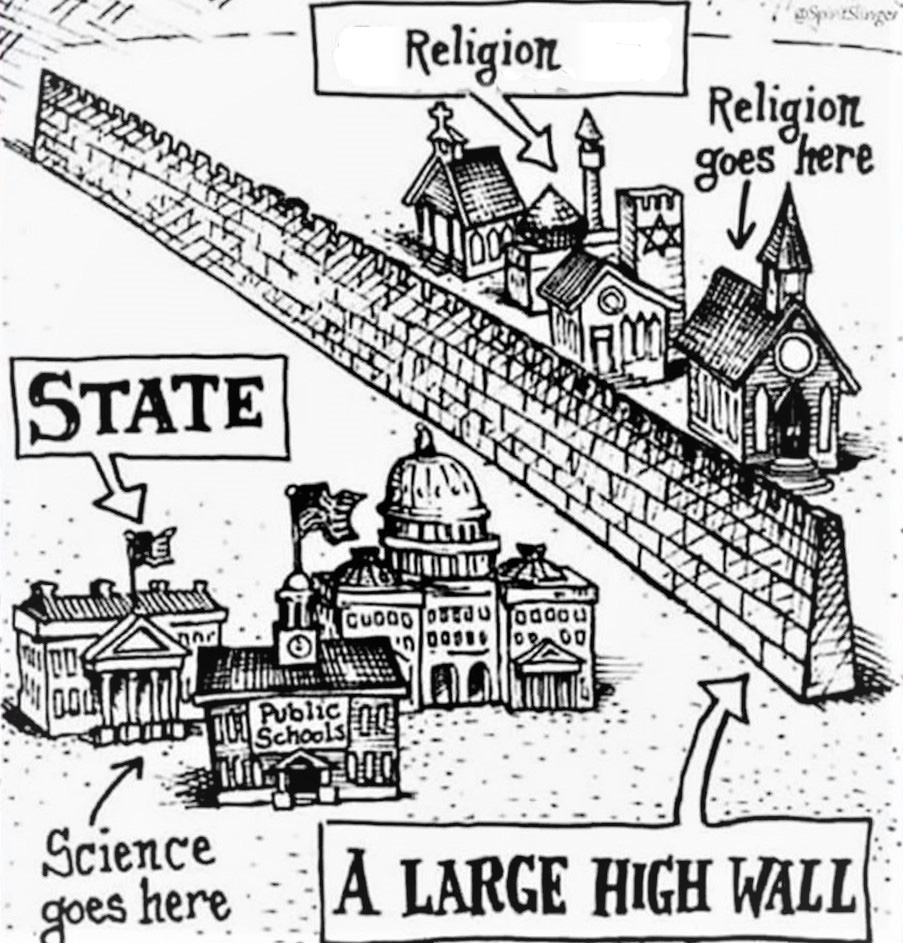
 | International House of Mashruteh |

At the fundamental law of Iran coming into force December 13, 1906 there was neither Islam nor Ulamah mentioned. The Mashruteh supportes knew that state and religion must be separated. But Shaykh Fazlollah Nuri and Mohammad Ali Sultan made a sneaky deal to infiltrate Islam into the constitution in their own favor.
These articles will be replaced by the following:
Art 1:Every Iranian is entitled to freedom of thought, conscience and religion. This right includes the freedom to change one's religion or belief, or to have no religion at all.
Art 2: The judicial Power of Iran, shall be vested in one supreme Court, and in such inferior Courts as the Majlis may from time to time ordain and establish. The supreme Court holds the power of judicial review, and has the ability to invalidate a law or farman for violating a provision of the Constitution.
--------------------------------------------------
Former Art 1 and 2:
ART. 1. The official religion of Persia is Islám, according to the orthodox Já'farí doctrine of the Ithna 'Ashariyya (Church of the Twelve Imáms), which faith 1 the Sháh of Persia must profess and promote.
ART. 2. At no time must any legal enactment of the Sacred National Consultative Assembly, established by the favor and assistance of His Holiness the Imám of the Age (may God hasten his glad Advent !) 2, the favor of His Majesty the Sháhinsháh of Islám (may God immortalize his reign!), the care of the Proofs of Islám
1 The Shi'ite form of Islám includes the "Church of the Twelve" (Ithná 'ashariyya) and the "Church of the Seven" (Sab'iyya). Both agree as to the sequence of their Imáms down to the sixth, Ja'far aִs-ִSádiq (from whom the epithet "Ja'farí" is derived), but diverge from this point. Both are regarded as heterodox by the Sunnís, but the "Church of the Twelve" is orthodox in Persia.
2 I.e. the Twelfth Imám, or Imám Mahdí, who is believed to have disappeared in the year A.H. 260 [A.D. 873-4] and who is expected to return at the end of time, "to fill the earth with justice after it has been filled with iniquity."
3 I.e. the 'ulamá, or doctors of theology, especially the mujtahids.
(God multiply the like of them!), and the whole people of the Persian nation, be at variance with the sacred principles of Islám or the laws established by His Holiness the Best of Mankind 1 (on whom and on whose household be the Blessings of God and His Peace!).
It is hereby declared that it is for the learned doctors of theology (the 'ulamá) — may God prolong the blessing of their existence! — to determine whether such laws as may be proposed are or are not conformable to the principles of Islám; and it is therefore officially enacted that there shall at all times exist a Committee composed of not less than five mujtahids or other devout theologians, cognizant also of the requirements of the age, [which committee shall be elected] in this manner. The ulamá and Proofs of Islám shall present to the National Consultative Assembly the names of twenty of the ulamá possessing the attributes mentioned above; and the Members of the National Consultative Assembly shall, either by unanimous acclamation, or by vote, designate five or more of these, according to the exigencies of the time, and recognize these as Members, so that they may carefully discuss and consider all matters proposed in the Assembly, and reject and repudiate, wholly or in part, any such proposal which is at variance with the Sacred Laws of Islám, so that it shall not obtain the title of legality. In such matters the decision of this Ecclesiastical Committee shall be followed and obeyed, and this article shall continue unchanged until the appearance of His Holiness the Proof of the Age (may God hasten his glad Advent!)
-------------------------------------------------
The mullahs considered the inclusion of the Article 2 as one of their victories and published it at that time, but the free and constitutionalist people of Iran were upset with all the demands of the mullahs, especially with the election of five mullahs in the National Assembly to review the country's laws. The office of the newspaper that published the second Articles was destroyed. Step by step, wherever the people wanted freedom, law and justice, the clerics, in their insidious ways, ignited a dichotomy between the people and the fire of enmity, creating a "mashruteh and mashrueh" dichotomy. Religion in political affairs and due to the dissatisfaction of the people with the second Article of the constitutional amendment, this Article was never used except in the first session of the Majlis Shora Melli and never announced by the scholars! Knowing that the people hated the mullahs and Islam, they refused to introduce twenty mullahs to the parliament, and the second Article was automatically considered absurd and did not go beyond what was written.